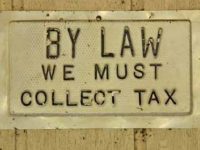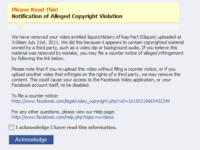The hearings into Canadian copyright have resumed at both the Industry and Canadian Heritage committees with witnesses making the case for a wide range of reforms. While Bryan Adams received the lion share of attention last week for his proposal to assist creators with quicker reversion of their rights, another proposal from the Screen Composers Guild of Canada (SCGC) deserves some scrutiny as an illustration of how many groups want new taxes or fees imposed on Internet services and technologies. I’ve written in the past about the music industry’s call for a tax on iPhones and other devices as well as its proposal for a $40 million per year taxpayer handout in until an iPhone tax can be implemented. This week the SCGC introduced a new proposal that would subject broadband data use to a copyright tax.
Archive for September, 2018
The Internet is not an ATM: My Appearance at the Senate Transport and Communications Committee on Broadcast and Telecom Reform
Earlier this week, I appeared before the Senate Standing Committee on Transportation and Communications alongside Carleton professor Dwayne Winseck to discuss broadcast and telecom reform. The Senate study, which largely mirrors the government’s broadcast and telecommunications reform panel, is expected to run into 2019 with a broad mandate that covers everything from affordable access to net neutrality. The discussion was similarly wide ranging with discussion on the failings of the CRTC, the lack of telecom competition, and on the need for real data in assessing the impact of the Internet on the cultural sector.
My opening statement focused on the danger of treating the Internet as equivalent to the broadcast system, the realities of how the Canadian cultural sector is succeeding online, and how policy makers ought to respond the changing landscape for communications in Canada. It is posted below.
Cuts Like a Knife: Bryan Adams Calls for Stronger Protections Against One-Sided Record Label Contracts
Canadian artist Bryan Adams placed copyright in the spotlight on Tuesday, appearing before the Canadian Heritage committee to make his case for copyright reform. Adams attracted widespread media coverage, though the big music industry groups such as Music Canada were conspicuously silent with not even a tweet to mark the appearance. Why the cold shoulder from the Canadian music industry to one of Canada’s best known artists? The obvious answer is that Adams sang from a far different songbook than the industry lobby groups. While those groups have been pushing for copyright term extension and a so-called “value gap” that bears little reality to Canadian law, Adams expressed artist frustration with the industry and one-sided contracts, noting that “I don’t even want to start naming the names of people who have had their copyright whisked from underneath their feet from contracts that they’ve signed as youngsters.”
Supreme Court of Canada on Copyright Notices: Identification of IP Address “Not Conclusive of Guilt”
The initial emphasis on last week’s Supreme Court of Canada’s copyright notice decision has focused on how Internet providers can pass along the specific costs associated with subscriber disclosures beyond those required for the notice-and-notice system to rights holders. The ruling rightly restores the notice system back to its intended approach, but it is not the only takeaway with implications for the recent flurry of file sharing lawsuits. While there has been a huge number of claims filed in Canada (with some surprisingly large settlements), the Supreme Court acknowledged important limitations in notice claims, noting that merely being associated with an IP address is not conclusive of guilt.
Notice the Difference?: Supreme Court Rules ISPs Can Be Compensated for Copyright Costs
Policy makers have long struggled to strike a fair balance in crafting rules to address allegations of copyright infringement on the Internet. Copyright owners want to stop infringement and the right to pursue damages, Internet subscribers want their privacy and freedom of expression rights preserved in the face of unproven allegations, and Internet providers want to maintain their neutrality by resolving the disputes expeditiously and inexpensively.
My Globe and Mail op-ed notes that the Canadian system for online infringement was formally established in 2012 and came into effect in 2015. The so-called “notice-and-notice” approach grants rights holders the ability to send notifications of alleged infringement to Internet providers, who are required by law to forward the notices to the relevant subscriber and to preserve the data in the event of future legal action. The system does not prevent rights holders from pursuing additional legal remedies, but Internet providers cannot reveal the identity of their subscribers without a court order.











